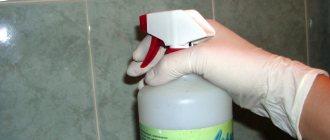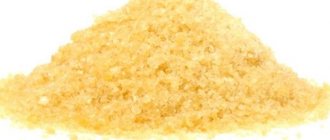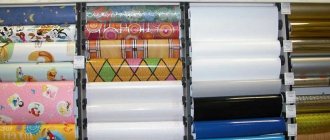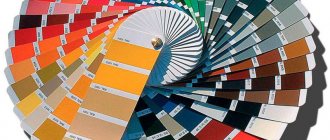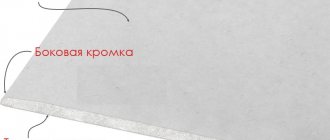Available means
Gel food colors
You can use some available materials as paints for epoxy resin:
- gel dyes for baking;
- ink from gel and ballpoint pens;
- watercolor paints with minimal dilution with water;
- soap dyes;
- eye shadow and nail powder;
- dry food coloring;
- printing inks;
- automotive enamels;
- alcohol solution of brilliant green;
- potassium permanganate crystals;
- crushed crayons and pencil leads.
The use of improvised materials as dyes does not always give a predictable result. Only professional colors give the desired effect - bright, beautiful and exactly matching the declared shade.
Tips for using colors
To prevent incorrect painting, it is important to follow the technology for mixing color and resin. Rules to follow:
- Use compatible materials - gradually mix the hardener and pigment in a test portion; if there are no undesirable effects, you can switch to the main mass.
- Make sure that there is no water in the paint, as it can ruin the resin product, give it a yellow tint or cause cracks.
- The maximum weight of colors in an item is 7% of the total weight of the resin; if you add more, the item will turn out soft. Oil, nitro and alkyd paints can be added up to 10% of the total weight.
Valera
The voice of the construction guru
Ask a Question
You need to work quickly with epoxy resin to which color has been added. It hardens within a few tens of minutes. The smaller the product, the more active the process.
Safety regulations
When working with dyes, it is important to follow safety precautions:
- many colors emit aggressive vapors during the polymerization process, you need to use a respirator and gloves;
- It is advisable to ventilate the room during work;
- if the composition gets on the skin, you need to clean it with alcohol and wash it with soap;
- mix the solutions in disposable containers, which are then thrown away;
- The ambient temperature should not be below 22 degrees and above 25.
Do not leave exposed paints unattended and do not allow pets or children to come into contact with them.
How to paint polyester resin
Epoxy resin is a multifunctional substance. Synthetic material is used both in industrial production and in households to embody creative ideas.
Special equipment
For successful painting, the easiest way is to purchase a special dye for epoxy resin. The paint can be plain, pearlescent, with sparkles, or fluorescent. If you add a drop of dye to the substance, you get a translucent shade. To obtain a rich color, the epoxy is first painted white and then the desired color.
Available means
The basic rule for painting epoxy is that the dye must not be water-based. How to tint epoxy resin:
On a note
To ensure a successful staining procedure, follow these recommendations:
- The weight of oil paint should not exceed 10% of the weight of epoxy resin, otherwise it will be too soft.
- Wear protective gloves when working. In case of contact with skin, wash immediately with soap and water.
- Do not allow water to enter the substance.
- Ventilate the room.
- Work with epoxy at a temperature of at least 22 degrees.
How to color the resin?
The surest way is to use special resin dyes. The dye for polyester resin is different from the dye for epoxy or polyurethane resins. It is worth remembering this so as not to spoil your work.
There are dry pigments, pigment pastes, tints/color pastes.
What is the difference between tinting paste and pigment paste?
The difference is that the pigment paste (buy) provides, in addition to color,
hiding power when painting surfaces, and the tinting paste only changes the color of the resin. In most cases, tinting pastes are used to color ready-made white enamels and paints, and pigment pastes are used to color clear varnishes and resins.
Pigment pastes allow you to obtain an opaque (dense) color for transparent epoxy resin by adding up to 5% dye.
With a small addition of paste - 0.01-0.05%, the transparency of the casting can be maintained.
Popular manufacturers
Among the brands that have gained trust are American and European manufacturers, as well as several Russian products:
- Poly Max Dream . The dyes are produced as a set, which includes: white, blue, green, pink and red fluorescent color.
- Crystal . The company produces paints and accessories for painting, including for creating crafts from epoxy resin. In total, the collection includes 50 shades. Packaged in 10 and 30 g. Large jars cost from 290 rubles, and small jars from 100.
- Polymer - O. _ The company produces concentrated paste-like colors. They are expensive - from 500 rubles per 50 g, but they are very economical in consumption. Some pastes contain fluorescent additives and phosphors. In the catalog you can find pearlescent pastes, as well as separate proposals for working with large areas - tins of paints of 1.6 kg.
- MICA Rainbow . Budget Chinese paints in the form of pigment powder. Unlimited choice of colors and price from 50 rubles per package. Contains natural mica and is environmentally friendly.
- Reactint . Innovative paints for plastic, polyurethane and epoxy resins. Available in concentrated liquid form. Very economical - 0.1% is enough to achieve rich color. The price of paints is quite affordable - 350 rubles for 15 g.
- MG Epox Color M. Colors for liquid epoxy resin, packaged in 10 g bottles. Cost from 120 rubles. There are many shades, including pearlescent. Metallic is represented only in silver.
- ArtLove . A popular brand that produces dyes for resins of its own production. Sold in 5 ml flasks, costs from 150 rubles. The color palette is blue, red, green, yellow and purple.
- EpoximaxX . Specializes in the production of jewelry resins and dyes. Produces highly concentrated, odorless products. Can be used to create matte and transparent shades.
- A relatively inexpensive dye for epoxy resin is “ Epoksikon ”. It is available in 10 g jars and costs from 120 rubles excluding discounts. There are compositions with mother of pearl. Environmentally friendly and clean material.
How to paint epoxy resin at home
There are many types of dyes: liquid, bulk, pearlescent, transparent, pastel, neon, luminous, for the petri technique, pop-up and so on. And each species has a variety of colors and shades. But such jars are not cheap. For each tube of such color pleasure you will have to pay an average of 100 to 400 rubles.
So you also need to buy it, select it, order it, wait... And we had an idea, what if we try to color the resin with something at hand?
Dyes for epoxy resin
Are we starting an experiment? Are you with us?
Below we will tell you in detail and show how we did it and what came out of it!
And at the end of the article there will be a short video about how it happened.
We would like to say right away that this is only an experiment. To work with resin, it is necessary to use special dyes.
So, first we need to figure out what, in theory, can color the resin. Our goal is to do this using products that you definitely have at home!
This is what we will try to mix with epoxy resin and see the result
- Iodine, Zelenka, Potassium permanganate, Fukortsin
- Activated carbon
- Paprika, Turmeric, Ginger
- Ballpoint pen ink
- Acrylic paint, Alcohol ink
Homemade dyes
Let’s not delay and tell you briefly about what happened.
Mix iodine with epoxy resin
When mixed with epoxy resin, iodine gives a beautiful red color, however, it lasts only a few hours, then begins to turn white. By the time it hardens, it acquires a dense white-milky hue.
Iodine with epoxy resin
A mixture of brilliant green and epoxy resin
Of course, we expected a beautiful emerald color and what a surprise we were when, just a couple of seconds after adding brilliant green to the epoxy resin, it became a light lilac color. But the green stuff didn’t stop surprising us. After 2 hours it became a magical sky blue color. The color was truly perfect and we even rejoiced at our “discovery” for a while, until it began to turn green and turned into a light green color. This, of course, upset us, but we were also pleased with the color. But in the morning we could expect anything, but not white. Actually, when the composition hardened, we got a white color over a large area and a white color with a barely noticeable lilac tint on a small form.
Zelenka with epoxy resin
IMPORTANT! The mold with a small area of filling was not damaged, but the shape of the cup holder turned green. This is most likely due to the type of silicone, but it is necessary to take this into account.
Potassium permanganate and epoxy resin
Yes, of course, we hoped that it would dissolve (naive)... but we also liked the effect. When added to the epoxy resin, metallic-black particles of potassium permanganate settled to the bottom and became a kind of “carpet.” I think this effect can be useful for certain ideas.
Adding potassium permanganate to epoxy resin
Fukortsin and epoxy resin
Well, he just didn’t disappoint. We expected a fuchsia color, mixed it, and got it. Frozen in the same shade. In general, apart from the smell of paint that it is endowed with, I don’t see any downsides. BUT work with it in a separate room and wearing a mask! It is important!
Fukortsin and epoxy resin
What happens if you mix epoxy resin and activated carbon?
If you need to get a charcoal effect, use charcoal =) It turned out beautiful. But remember, any porous material, when added to epoxy resin, releases air and, as a result, produces bubbles. To avoid this, varnish or fill it with a small amount of resin and let it dry, and then fill it completely. But we liked these bubbles, they look impressive. I think it would look good for the effect of rocks and sea foam.
Activated carbon in epoxy resin
Add spices to epoxy resin. Paprika, turmeric, ginger
When you mix spices with epoxy resin, you get a very unusual dense texture. This also produces bubbles, which appear again and again even when using a burner, but in addition to color, we get the effect of sand. Paprika gave a bright red color, ginger - golden, turmeric - red-orange, more red, which also really surprised me.
Ballpoint pen ink and epoxy
Having seen enough videos on the Internet where blue ink turns red, we wanted to repeat it. But a miracle did not happen, either we took an old pen and the ink was already a bit dry, or not all inks give such an effect. In general, our ink did not dissolve completely, it gave a pleasant light purple color, the epoxy remained transparent, despite the color.
Ink in epoxy resin
Acrylic paint and alcohol ink
Quite banal dyes for resin. Acrylic gave a dense color, ink - transparent. The colors were quite predictable, so we think there is no point in painting.
Alcohol ink with epoxy resin
Conclusion
From what we tried, we will definitely use activated carbon, perhaps spices, potassium permanganate and different types of paints (you can paint not only acrylic, but also, for example, oil). We probably don’t recommend using iodine, brilliant green and fucorcin, iodine and brilliant green because of the color, fucorcin because of the smell, it’s too heavy.
But still, it is more correct and better to buy special dyes for epoxy resin, the choice on the market is huge and you don’t risk it, after all, epoxy resin is a complex chemical element and it should be mixed with special dyes.


